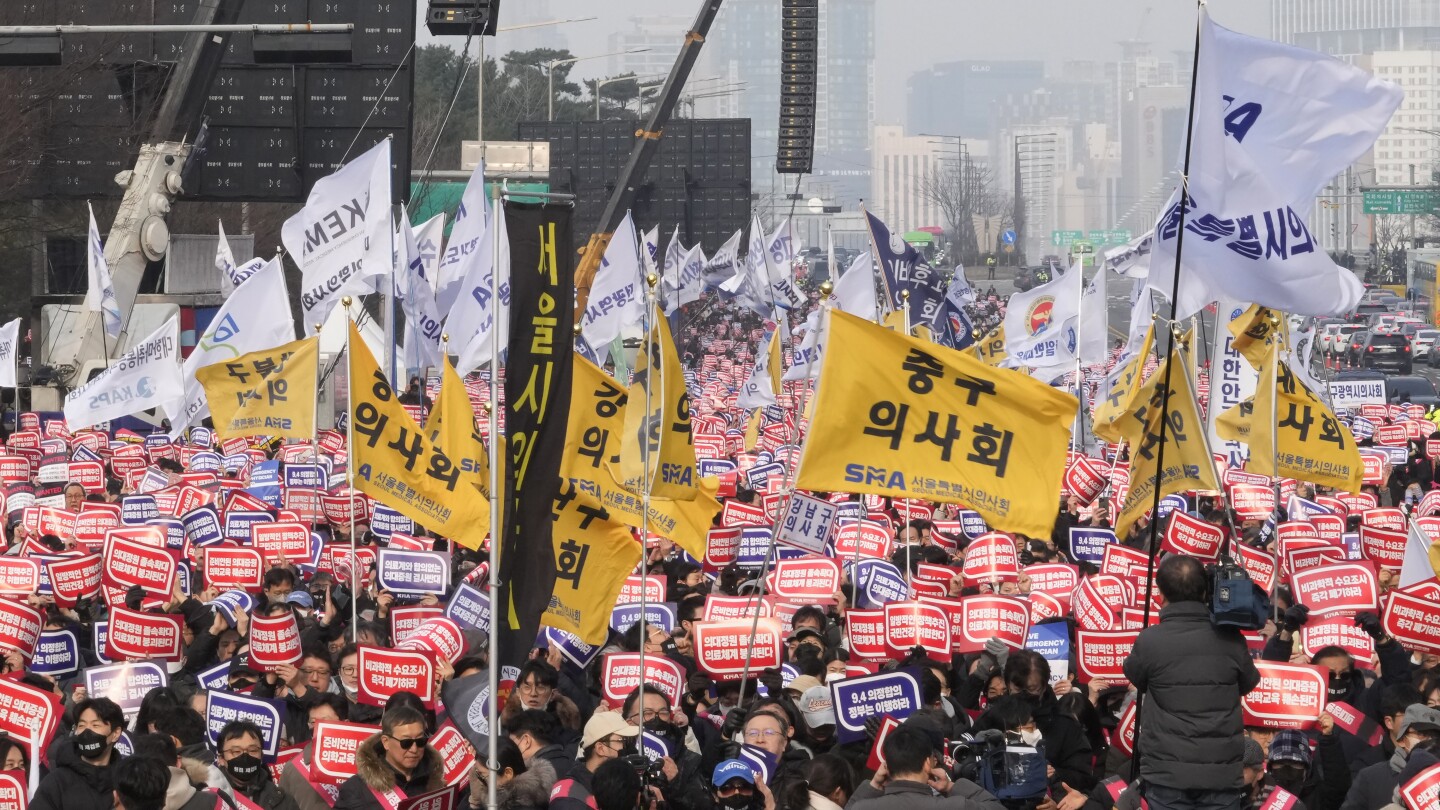SEOUL, South Korea (AP) — Thousands of senior doctors rallied in Seoul on Sunday to express their support for junior doctors who have been on strike for nearly two weeks over a government plan to sharply increase the number of medical school admissions.
The rally came as the government said it would begin to take steps Monday to suspend the medical licenses of nearly 9,000 medical interns and residents for defying government orders to end their walkouts, which have disrupted hospital operations.
“The government’s absurd medical policy has triggered immense resistance by trainee doctors and medical students, and we doctors have become one,” Park Sung-min, a senior member of the Korea Medical Association, said in a speech at the rally. “I’m asking the government: Please, stop the threats and suppression now.”
Protesters chanted slogans, sang and held placards criticizing the government’s plan. There were were no reports of any violence at the rally.
As of Thursday night, 8,945 of the country’s 13,000 medical interns and residents were confirmed to have left their worksites, according to the Health Ministry. The government has repeatedly said they would face minimum three-month license suspensions and indictments by prosecutors if they didn’t return by Feb. 29.
The striking doctors are a fraction of South Korea’s 140,000 doctors. But they account for about 30-40% of the total doctors at some major hospitals, where they assist senior doctors during surgeries and other treatments while training. Their walkouts have subsequently caused numerous cancellations of surgeries and medical treatments at the hospitals.
Senior doctors have staged a series of rallies backing the young doctors but haven’t joined the walkouts. If they also launch strikes, that would pose a major blow to South Korea’s medical service.
The government wants to increase South Korea’s medical school enrollment quota by 2,000 starting next year, from the current 3,058, to better deal with the country’s rapidly aging population. Officials say South Korea’s doctor-to-population ratio is one of the lowest among developed countries.
But many doctors have vehemently protested the plan, saying medical schools can’t handle such a sharp increase in the number of students. They say the recruitment plan also does not address a chronic shortage of doctors in essential but low-paying specialties like pediatrics and emergency departments.
Doctors say adding too many new doctors would also result in an increase in public medical expenses since greater competition would lead to excess treatments. But critics say the doctors simply worry about receiving a lower income due to the rising number of doctors.

